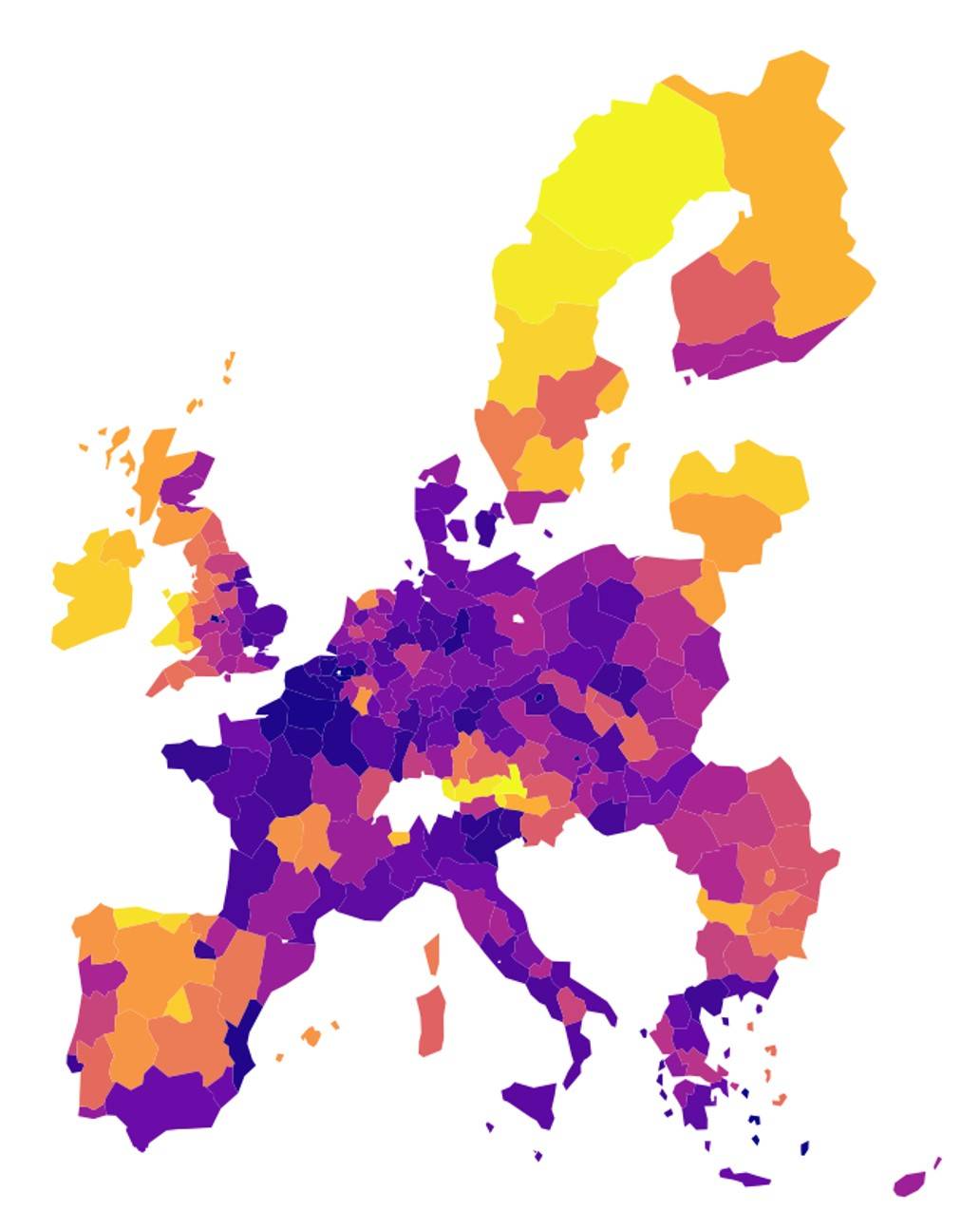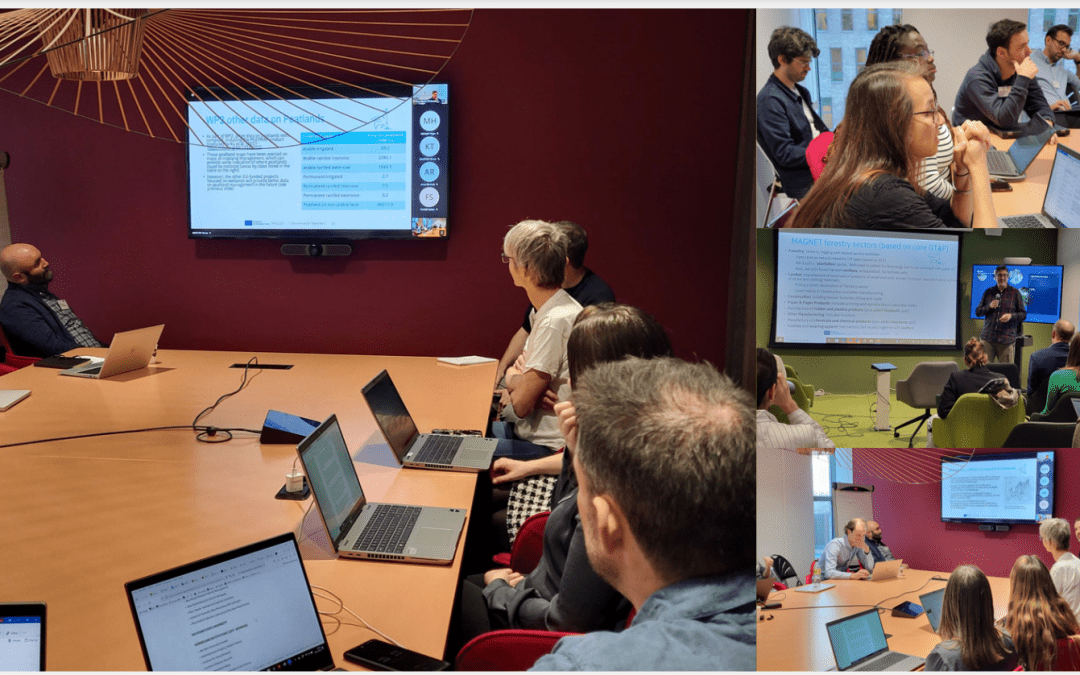The LAMASUS annual consortium meeting was well attended by its advisors from DG AGRI, DG CLIMA, the EEA, and Trinity College Dublin. These advisors provided detailed feedback on the LAMASUS work to date and concrete upcoming plans, as well as specific input for additional data and project resources to be used. Their feedback highlighted the importance of LAMASUS for the EU CAP process and the importance of the open-access databases.
Andrea Hagyo: “LAMASUS is a project with high potential, […] the EEA follows the progress on land use management and policy databases closely.”

Andrea Hagyo, from the EEA, highlighted the potential links to upcoming Copernicus data and other work on extensive grazing livestock, ecosystem accounting, and the Land Use Meta Language ISO standard and provided explicit feedback to expand the methodology and rational description for the LAMASUS geodatabase and policy database. She also reiterated the importance to take into account the increasing demand for land from different sectors and for various policy objectives, such as renewable (in particular solar) energy, climate change mitigation and adaptation as well as nature restoration. These land uses are in direct competition with agriculture and forestry, which supply essential biomass for food security and renewable materials.
Alan Matthews, from Trinity College Dublin, built on the competing demand for land. He highlighted lessons learned from Ireland, Scotland and Denmark, three countries with successful engagement with policy makers and citizens. He recommended establishing links between LAMASUS case studies and national organizations and initiatives including official providers of data and academics who do the scenario analysis to establish a dialogue and enhance the longevity of stakeholder engagement. Focus on how case study countries use LAMASUS results (data and parameters) and what data and definitions these organizations are currently using.
Tassos Haniotis, FFA/IIASA, stressed the importance to create more country ‘leaders’. He stressed the importance to influence the policy debate by using a baseline of a changing world, which is affected by natural gas prices, wheat markets and the role of Ukraine’s role on agricultural prices and food insecurity outside of Europe. He further stressed the importance to provide concrete examples of what works in land management.
Tassos encouraged partners to use the most recent, most detailed data, including linking yields and soil, which is particularly important to analyze the joint economic and environmental impact. He also encouraged partners to group policy measures based on impact, and on the other hand, understand model constraints, so that it becomes possible to understand gaps between models.
Olaf Heidelbach: “very impressed with the project progress.”
Olaf Heidelbach, from DG AGRI, highlighted the importance to use the mapping study to map what member states chose to do in the CAP, and he extended the importance to cross check with DG AGRI to identify any more recent changes. He also reiterated that LAMASUS is highly policy relevant, precise and clear research results on the relationship between policy and environmental outcomes are needed, and need to be in sync with the policy cycle to be useful for the next CAP. Translate results for example linking payments to environmental performance comprehensively to various policy makers (local, national, and EU level MEPs) is crucial to reach constituents.
Jurij Krajcic, from DG CLIMA, provided policy updates related to the Carbon Removals Certification Framework, key take-aways from the LULUCF revision, and proposal for a monitoring framework for resilient EU forests. This regulation is in the final stage, and would be a good opportunity for LAMASUS to support and work together with national modellers on Tier 3 LULUCF regulation.
